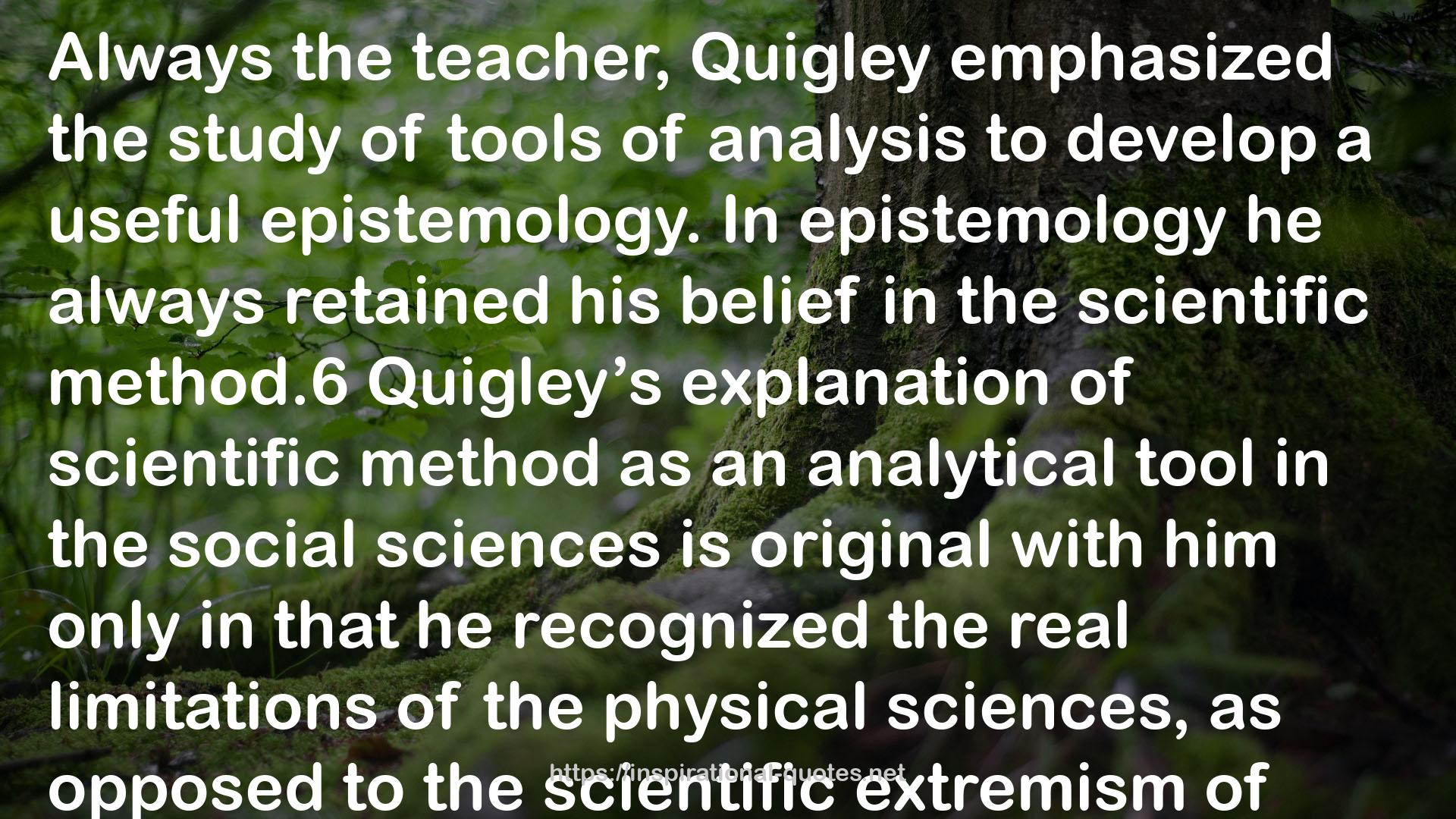" Always the teacher, Quigley emphasized the study of tools of analysis to develop a useful epistemology. In epistemology he always retained his belief in the scientific method.6 Quigley’s explanation of scientific method as an analytical tool in the social sciences is original with him only in that he recognized the real limitations of the physical sciences, as opposed to the scientific extremism of Langlois and Seignobos. The scientific method Quigley subscribed to consists of gathering evidence, making a hypothesis, and testing the hypothesis. The laws arising from the use of scientific method in both the physical and social sciences are idealized theories reflecting observed phenomena only approximately, but Quigley felt laws must be based on observation and must be amended to account for any observed anomalies. After these laws were scientifically constructed, Quigley used them as conceptual paradigms to explain historical phenomena through comparison, in contrast to rationally derived laws of the theorists which will not adapt to anomalies of observation. “Theory must agree with phenomena, not vice versa.” 7 Thus, Quigley puts the historian at ease with scientific methods by explaining that physical laws have as many exceptions as the historicists claim historical laws do. "
― Carroll Quigley , Carroll Quigley: Life, Lectures and Collected Writings
